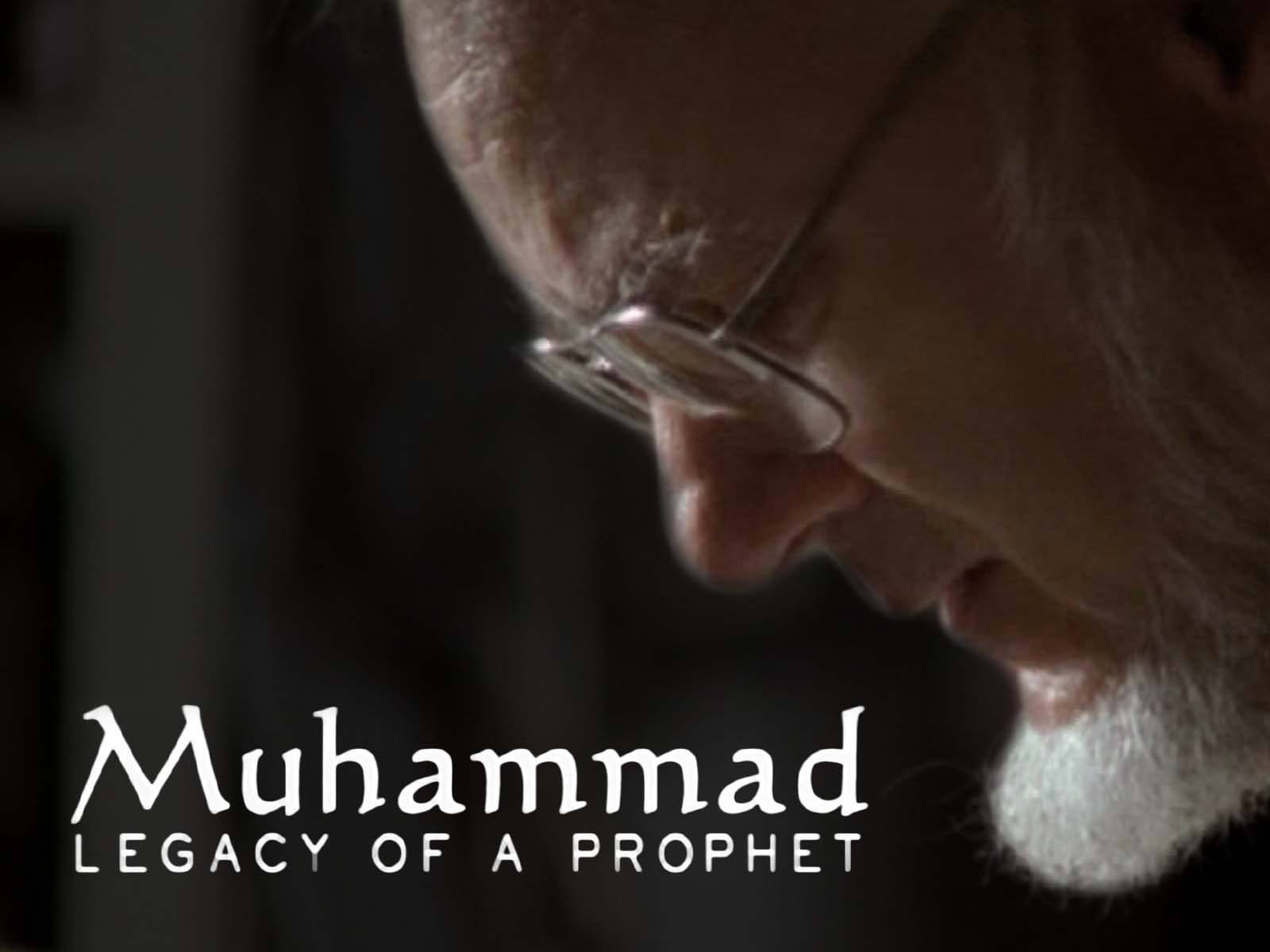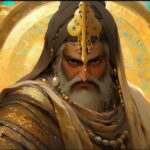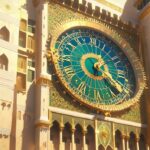Exploring Islam in America Through Personal Stories
Ever wanted to dive into the rich world of Islam? Join us for an extraordinary journey with “Muhammad: Legacy of a Prophet.” This PBS film delves into the life and teachings of the Prophet Muhammad, exploring the profound impact Islam has had on the lives of over 1.6 billion people worldwide.
Through interviews with American Muslims from all walks of life, the film unveils the captivating diversity within the faith. “Muhammad: Legacy of a Prophet – A Frontline Look at Islam in America” invites viewers to leave misconceptions behind and embrace a deeper understanding, exploring the power of unity and respect.
Unveiling the Profound Legacy of Prophet Muhammad: Research Analysis & Strategic Insights
Key Points of “Muhammad: Legacy of a Prophet”:
- Explores Islam through the lens of personal stories and experiences.
- Provides insights from renowned scholars Karen Armstrong and Seyyed Hossein Nasr.
- Humanizes the Prophet Muhammad, showcasing his relevance in contemporary life.
- Features interviews with diverse American Muslims, showcasing the impact of their faith.
- Challenges stereotypes and opens conversations about inter-faith understanding.
- Illuminates the rich legacy of Islam and its presence in America today.
- Encourages exploration of the Prophet Muhammad’s teachings and the vibrant tapestry of Islam in the modern world.
This documentary goes beyond historical facts, presenting insights from prominent scholars such as:
- Karen Armstrong: Former nun and author specializing in Abrahamic religions
- John Voll: Professor of Islamic history at Georgetown University
- Seyyed Hossein Nasr: Professor of Islamic Literature, George Washington University
- Reuven Firestone: Scholar of Islam and Judaism, Hebrew Union College
Viewers connect with a diverse range of American Muslims sharing their personal experiences, including:
- Daisy Khan: Executive director of ASMA Society
- M. Cherif Bassiouni: Professor of Law, DePaul University
- Mohammed Zakariya: Muslim convert and master Arabic calligrapher
- Jameel Johnson: Muslim and Chief of Staff for Congressman Gregory Meeks
- Kevin James: Muslim convert and Supervising Fire Marshall from New York City Fire Department
- Najah Bazzy: Muslim Critical Care Nurse
Aired nationwide on PBS and internationally on National Geographic International, “Muhammad: Legacy of a Prophet” is estimated to have reached over 10 million viewers in the United States, serving as a valuable educational resource for communities, schools, and organizations.
Powerful Key Lines:
- Prophet Muhammad’s legacy transcends religious boundaries, shaping the course of history through the enduring values of Islam: peace, justice, and submission to the divine. (This key line emphasizes the global impact and core principles of his legacy).
- From the Arabian desert to the digital age, Prophet Muhammad’s teachings continue to resonate, inspiring millions and fostering a vibrant global community united by faith. (This highlights the enduring relevance of his message and the vastness of the Muslim community)
- The “Muhammad: Legacy of a Prophet” documentary illuminates the profound impact of Islam on American Muslims, showcasing their diverse experiences and contributions to society. (This key line focuses on the documentary’s specific angle and its relevance to understanding American Muslims).
- Delving into the life and teachings of Prophet Muhammad unveils a legacy interwoven with social justice, spiritual enlightenment, and a profound connection between faith and daily life. (This key line emphasizes the multifaceted nature of his legacy and its impact on individual and societal levels).
This legacy is deeply rooted in the Five Pillars of Islam – faith, prayer, charity, fasting, and pilgrimage – showcasing the practical application of Prophet Muhammad’s teachings in a Muslim’s life.
To truly understand the depth of his impact, one must consider:
- The Historical Context: Detail Prophet Muhammad’s life in 7th century Arabia, his role as a messenger, and the revelation of the Quran.
- Impact on Arab Society: Discuss the unification of the Arabian Peninsula under Islam, the establishment of Medina as a model state, and the subsequent spread of Islam.
- Expansion of the Islamic Empire: Briefly cover the early Caliphates and the spread of Islamic civilization, focusing on the intellectual, scientific, and cultural advancements during this golden age.
- The Quran and its Teachings: Dedicate a section to the Quran’s core messages: monotheism, social justice, ethical conduct, and the importance of knowledge.
- The Hadith and Sunnah: Explain their role as sources of guidance for Muslims.
- Different Branches of Islam: Briefly introduce Sunni and Shia Islam, their core beliefs, and their historical development.
- Contemporary Relevance: Discuss how Prophet Muhammad’s teachings remain relevant today, addressing themes like peace, social justice, family values, and environmental stewardship.
- Misconceptions and Challenges: Acknowledge common misconceptions surrounding Islam and Prophet Muhammad and counter them with accurate information and historical context.
“Muhammad: Legacy of a Prophet” sparks conversation and encourages further exploration, inviting viewers to consider:
Prophet Muhammad: Unveiling a Legacy
How Did Prophet Muhammad Change the World?
To fully grasp the magnitude of his influence, we must look beyond religious doctrine and examine:
- Social Structure of Arabia: Explore the revolutionary concept of women having inherent rights, the abolishment of female infanticide, and the establishment of inheritance and property rights for women.
- Unification of Arabia: Before Islam, Arabia was plagued by tribal feuds. Prophet Muhammad’s ability to unite disparate groups under a shared sense of community and purpose was a monumental achievement.
- The Golden Age of Islam: His emphasis on knowledge and learning, along with the newfound stability of the Islamic world, led to groundbreaking discoveries in fields like astronomy, mathematics, and medicine, impacting scientific thought for centuries to come.
While his legacy continues to resonate, it’s important to remember that understanding a figure as influential as Prophet Muhammad is an ongoing process.
Was Muhammad a Good Role Model?
This question sparks much debate and requires careful consideration. On the one hand, we must remember that Muhammad was a human being who lived in a very different time and place. To judge him solely by today’s values might lack historical context. On the other hand, certain aspects of his character transcend time.
His unwavering advocacy for the vulnerable, commitment to justice and fairness, and dedication to knowledge and self-improvement are timeless qualities that continue to resonate.
Ultimately, whether Prophet Muhammad serves as a role model is a personal decision, but exploring his life and teachings within their historical context provides invaluable lessons for us all.
Are you interested in knowing more about the profound ancient aliens and the tales of Edgar Cayce: the sleeping prophet? Click here for more information: ancient aliens – edgar cayce: the sleeping prophet
For those who are curious about the sidekick from 1950s television that left a mark, here’s a link to an intriguing article: sidekick of 1950s tv
And for the seekers of adventure and discovery, dive into the captivating story of Magellan and the Trujillo by clicking on this link: magellan and the trujillo
- Star Ring Trends: Etsy vs Amazon - March 28, 2025
- Boost Pollinator Habitats: Baby Blue Eyes Sustainable Farming Guide - March 28, 2025
- Protect Big Black Bears: Effective Conservation Strategies - March 28, 2025
















